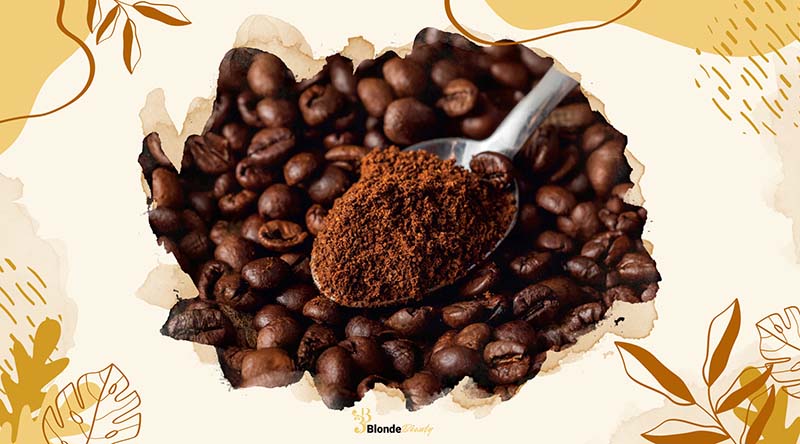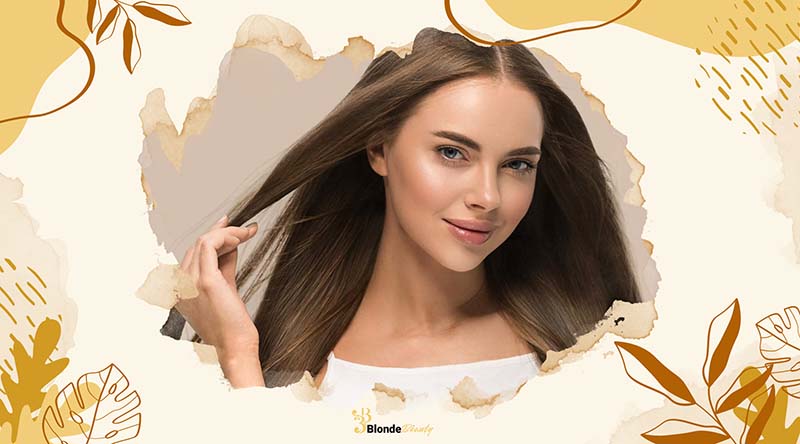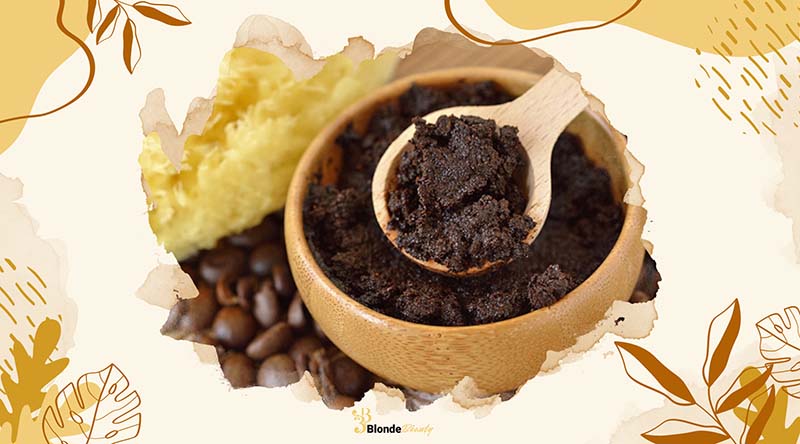Coffee, a common household ingredient, is packed with antioxidants and moisturizers. But is coffee good for your hair? You may not have wondered about this unlikely connection. But coffee can enhance your hair’s texture and color, as well as providing numerous other benefits.
A popular method to reap these benefits is a coffee rinse. However, before you brew a pot and pour it on your hair, BlondeBeauty has outlined some important precautions to consider. Following these tips can help you safely and effectively integrate coffee into your hair care regimen.
Research Says Coffee Is Indeed Good for Your Hair
The benefits of caffeine for hair are not just old wives’ tales; they are scientifically proven. Several studies have tested caffeine’s effects on hair follicles, highlighting its potential as a natural treatment for hair loss.
One study in 2007 showed that caffeine stimulates hair follicles and counteracts the negative effects of testosterone on hair growth. This discovery makes it a promising treatment for the infamous hereditary hair loss.
In 2014, another study found that caffeine enhanced hair shaft elongation and prolonged the prime phase in hair growth in both men and women. Furthermore, a 2018 study revealed that a caffeine-based topical solution was nearly as effective as minoxidil 5% in treating hair loss in men.
If you’re concerned about hair loss, caffeine could be the solution you’re looking for. It’s not just a myth; it’s a scientifically proven way to boost your hair’s health.

Benefits of Coffee for Hair
Not only can coffee boost your energy for the working day ahead, but it can also provide an abundance of benefits to your hair.
Coffee Stimulates Hair Growth
With age, hair loss can affect both men and women. Applying coffee topically to your hair and scalp can potentially halt hair loss and promote regrowth.
A 2007 laboratory study revealed that caffeine can block the effects of dihydrotestosterone (DHT), a sex hormone linked to hair loss, in both male and female hair follicles. This led to hair shaft elongation, resulting in longer and thicker hair roots. Researchers also discovered that caffeine extended the anagen phase, which is the active hair growth stage.
As a stimulant, caffeine also boosts blood circulation to hair follicles, helping hair grow faster and become stronger. This promotes the appearance of fuller, thicker hair.

Coffee Darkens Grey Hair
Looking for a natural way to cover grey hair? A coffee rinse can be an excellent solution. The dark color of coffee can stain your hair, providing a tint that covers grey hairs. For best results, use robust coffee, like espresso.
This method works particularly well for those with naturally brown hair, as the coffee tint blends seamlessly, masking greys without a trace.
Coffee Adds a Natural Shine to Your Hair
Coffee is not only rich in caffeine but also packed with antioxidants like flavonoids. These antioxidants protect your hair from free radicals and oxidative stress. As a result, it strengthens the hair follicles and gives your hair a natural shine.
Unlike synthetic ingredients, coffee doesn’t strip your hair of its natural oils. Instead, it helps retain moisture, enhancing the hair’s natural sheen.

Coffee Enhances Hair Softness
If you struggle with frizz or have dull, brittle, and lifeless hair, coffee can offer a quick solution.
Rinsing your hair with coffee can improve its appearance by boosting antioxidant levels and increasing blood circulation to the scalp. This helps retain the hair’s natural moisture, making it look less brittle, dry, and damaged.
How to Use Coffee for Hair Growth
Beyond enjoying your daily cup of coffee, there are several ways to incorporate this easy-to-find ingredient into your hair care routine. From conditioning hair masks to shampoo rinses, coffee is easy to find and beneficial for your hair. Here’s a common and effective method to use coffee for hair growth:
Coffee Rinse
Whether you want to stop hair loss, dye your hair, or improve its texture, a coffee rinse is simple to make and use.
What You’ll Need:
- 2–4 cups of brewed, completely cooled coffee
- Spray or applicator bottle
- Plastic shower cap
Instructions:
- Brew 2 to 4 cups of coffee, depending on your hair length. Allow the coffee to cool completely, then pour it into a spray bottle or an applicator bottle.
- Wash and condition your hair as usual. While your hair is still wet, spray or apply the brewed coffee, ensuring your strands are fully saturated.
- Massage the coffee into your hair and scalp for a few minutes. Cover your hair with a shower cap and let the rinse sit for about 20 minutes.
- For extra moisture, mix your favorite leave-in conditioner with the brewed coffee before applying it to your hair.
- After 20 minutes, rinse the coffee out with cold or lukewarm water and pat your hair dry.
Note: If you are using a coffee rinse to dye your hair, you may need to repeat the rinse to achieve the desired color.

Coffee-Infused Cosmetic Products
This may sound intriguing if you are a person who is too busy to make a coffee rinse. Coffee-infused shampoos, conditioners, masks, and treatments are widely available and offer similar benefits. These products can be a convenient alternative, providing the same hair-enhancing properties without the need for DIY preparation.
Note:
- If you are making coffee rinses or masks, use organic coffee to avoid pesticides and other chemicals.
- When using cosmetic products, follow the manufacturer’s instructions for the best results.
- Store any unused coffee treatments in the refrigerator and use them within a few days to ensure freshness and effectiveness.
- Consistency is key; use these products regularly to see long-term improvements.
- Combining and alternating caffeine treatments with other hair health practices can maximize results and minimize side effects.
Things to Note Before Using Coffee to Enhance Your Hair
- Complete Cooldown: Always let the coffee cool completely before transferring it to a spray bottle and applying it to your hair. Applying hot coffee can burn your scalp.
- Use Powdered Coffee: For hair masks, powdered coffee is preferable.
- Opt for Unflavored Coffee: When making a coffee mask at home, use unflavored coffee. Flavored coffees often contain added sugars that can reduce the coffee’s effectiveness.
- Allergic Reactions: If you experience any allergic reactions, whether from homemade coffee treatments or store-bought coffee products, stop using them immediately and seek professional medical advice.
Are There Any Side Effects of Using Coffee for Hair?
- Hair Staining: For those with light-colored hair, be cautious when applying actual coffee. It can temporarily stain your hair, leaving an unintended tint. To avoid this, consider using caffeine-infused hair products that have been carefully formulated.
- Excessive Caffeine Consumption: While topical application of caffeine can be beneficial, consuming excessive amounts of coffee in an attempt to boost hair health is not advisable. Overconsumption can lead to health issues like increased heart rate, nervousness, digestive problems, and sleep disturbances.
- Dryness and Brittle Hair: Coffee can have a drying effect on hair. Frequent use of DIY coffee treatments can lead to dry, brittle, or fragile hair. To avoid this, use such treatments in moderation and balance with moisturizing hair care products.
Note:
- Perform a patch test before using coffee treatments to check for any allergic reactions.
- Seek professional medical advice immediately when experiencing abnormal effects.
Takeaway
We believe that this article made you look at your cup of coffee in the morning in a different light? You won’t need to ask, “Is coffee good for my hair?” the next time you want to use the leftover from your coffee pot to boost your hair’s properties.
In summary, coffee is a readily available and science-backed ingredient that can promote hair regrowth, enhance softness and shine, and help cover pesky greys. You can easily make a coffee rinse at home or opt for haircare products infused with coffee. Just ensure you use cooled coffee and use coffee powder for masks. If you experience any allergic reactions, discontinue use immediately. Coffee can be a wonderful addition to your hair care routine when used safely and effectively.
How has this coffee-infused treatment turned out for your hair? What other hair problems are you facing? Any other haircare tips you want to share? Comment down below and maybe we can help each other.
Don’t forget to check out more blogs from Blonde Beauty for additional tips and insights on achieving your best hair ever.

Laureate Professor Clare Collins
Professor Clare Collins is a leading expert in nutrition and dietetics at the School of Health Sciences, part of the College of Health, Medicine and Wellbeing. Her work is changing the way we think about food and health. She grew up as one of nine children and was the first in her family to finish high school and go to college. This background gave her a strong work ethic and a deep appreciation for seizing opportunities.
As the Director of the Hunter Medical Research Institute’s Food and Nutrition Program and a recipient of three NHMRC Research Fellowships, Professor Collins is making a big difference in public health. She focuses on helping people who are often overlooked, using new technologies like apps and online programs to improve their nutrition and reduce the risk of chronic diseases.
Professor Collins is well-respected and has been recognized as a Fellow in four major health and science organizations. She leads a diverse team of experts, including dietitians, computer scientists, and engineers, working together on global health projects.
Her achievements are impressive. She has received over $29 million in research funding, published more than 450 papers, and helped 35 PhD and Master’s students complete their degrees. She’s also active in sharing her knowledge with the public. She has developed tools like the Australian Eating Survey and the Healthy Eating Quiz, and she often appears in the media to talk about nutrition.
PUBLISHED ARTICLES
- Collins, C. (2019). “The Effect of a Pilot Dietary Intervention on Pain Outcomes in Patients Attending a Tertiary Pain Service.”
- Collins, C. (2022). “Variation in cardiovascular disease risk factors among older adults.”
- Collins, C. (2022). “Evaluation of an online intervention for improving stroke survivors’ health-related quality of life: A randomised controlled trial.”
These articles show Professor Collins’s commitment to understanding how better nutrition can improve health. Her work is important for researchers, doctors, and anyone interested in healthy living.
